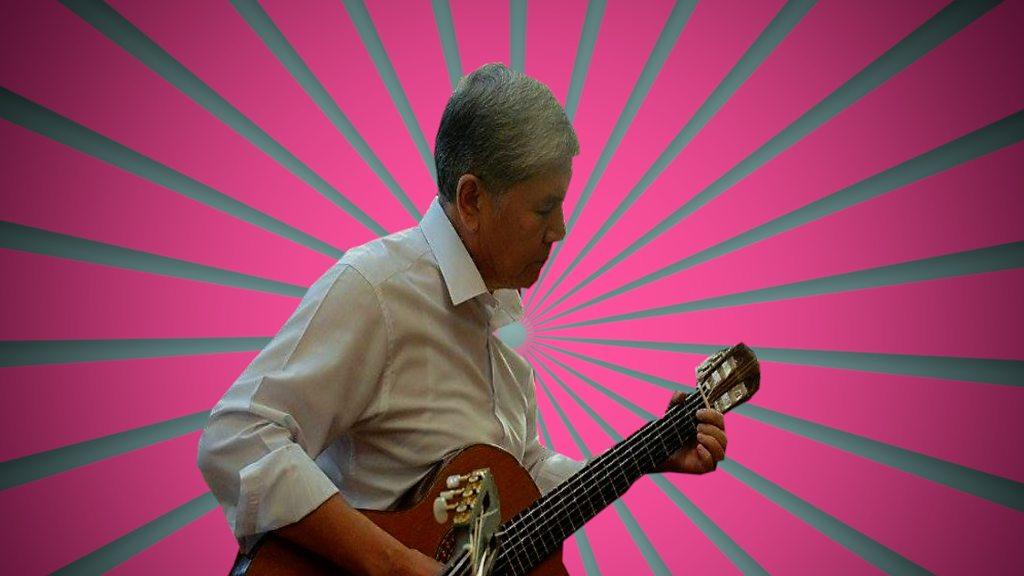Kyrgyzstan election: A historic vote, but is it fair?
- Published
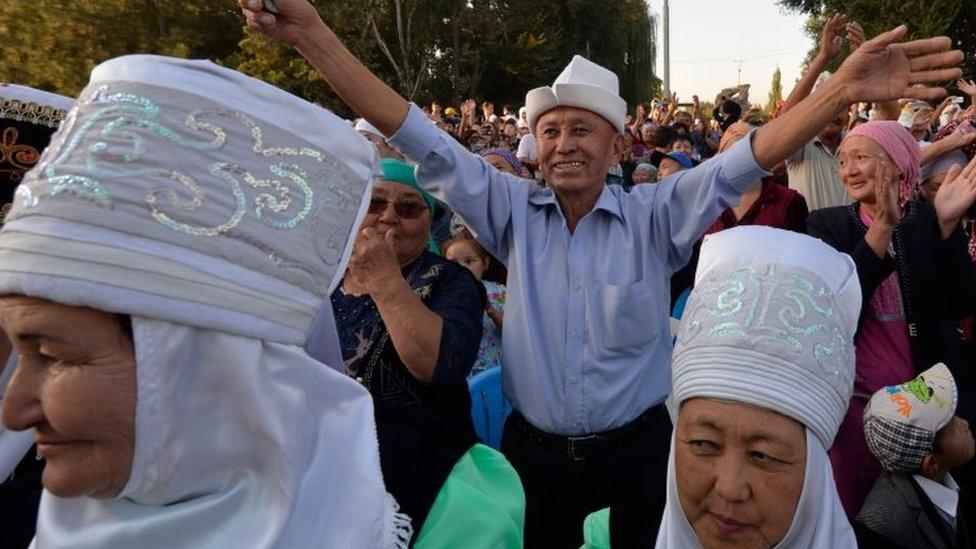
Elections in Central Asia are usually easily predictable - but will that be the case on Sunday?
For the first time in the history of Kyrgyzstan, an elected president is due to peacefully hand over power after elections take place on Sunday. But critics say the political environment in Central Asia's "island of democracy" is deteriorating.
Here's a look at the issues there - and who's likely to come out on top.
What's special about the vote?
Elections in Central Asia are usually easily predictable - the incumbent or the ruling party's candidate wins the vote with an overwhelming majority. But the vote in Kyrgyzstan offers a real competition and choice.
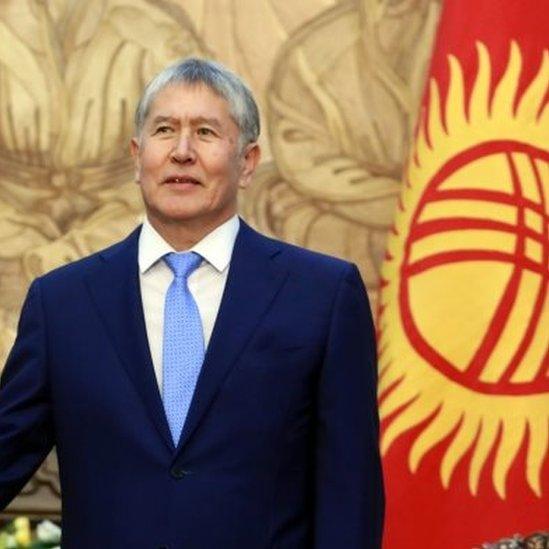
President Almazbek Atambayev has promised not to go for the PM's post
Nearly 60 people applied to run in the race, 13 of whom were registered to stand. Two later dropped out. The incumbent, President Almazbek Atambayev, must leave office after six years. Under the Kyrgyz constitution, he may only serve one term.
In neighbouring states, laws have often been changed to allow the incumbent to run again but this did not happen in Kyrgyzstan. President Atambayev also promised not to go for the prime minister's job in order to stay in power.
Who are the contenders?
Although one of the main candidates - Sooronbay Jeenbekov - is from the president's party, he is not guaranteed to win the vote. He faces a strong opponent - Omurbek Babanov, a prominent businessman and a former prime minister.
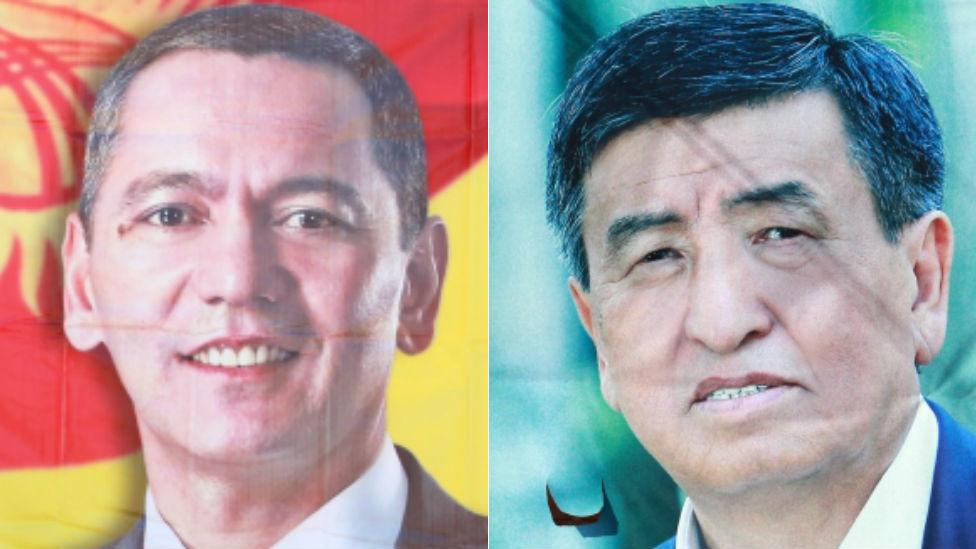
Omurbek Babanov (left) and Sooronbay Jeenbekov
Some candidates made the unusual move of endorsing their opponents after the campaign started. Experts say that they went through all the trouble of getting into the race in order to increase their political influence.
They try to build a greater support base, which they use to negotiate a favourable deal with stronger candidates before pulling out of the race. Politicians can easily change sides, because it's not ideology or a political platform but their own personality that they use to appeal to the voters.
What is the political climate like ahead of the vote?
Observers say that over the last couple of years the political climate in Kyrgyzstan has been deteriorating.
The Helsinki Commission wrote that "the vote takes place amid mounting concerns of democratic backsliding, particularly regarding the government's treatment of political opposition, civil society and human rights defenders".
President Atambayev has demonstrated increasing intolerance to criticism. The Sentyabr TV station which opposed him was closed last year for extremism, and activists say that there were blatant procedural violations during the trial.
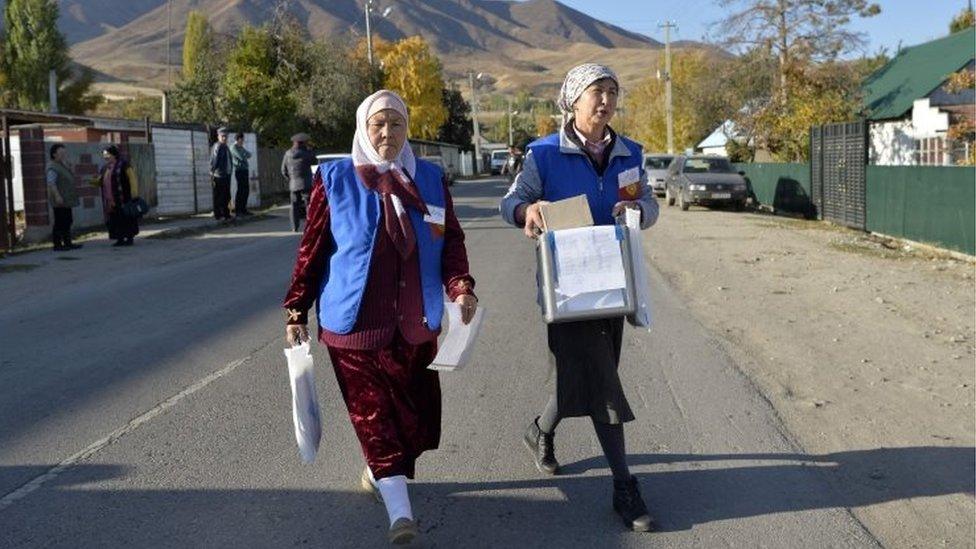
Despite reports of election violations, many voters feel encouraged by the fact that there are several strong candidates
Several popular independent media outlets were sued and heavily fined for insulting the president. The government also tried to intimidate critics on social media. Security services identified Facebook users who criticised the president, and gave them warnings.
Several political opponents of President Atambayev have also been sent to prison. Earlier this year, leaders of the opposition People's Parliament movement were jailed for allegedly plotting a coup.
Omurbek Tekebayev, a former ally of President Atambayev who turned into a prominent critic, was sentenced to eight years in prison for corruption and fraud and subsequently barred from running for the presidency. Experts saw this case as politically motivated.
The atmosphere got particularly tense following a major diplomatic spat between Kazakhstan and Kyrgyzstan.
It started last month after a meeting between the president of neighbouring Kazakhstan, Nursultan Nazarbayev, and Mr Babanov.
In an unusually harsh speech, President Atambayev accused his Kazakh counterpart of interfering in Kyrgyzstan's affairs, and warned them of worse to come.
"I will speak differently if our neighbours don't come to their senses," he said.
So how fair is the election expected to be?
Since the beginning of the campaign, there have been numerous reports of violations by various candidates.
There have been reports of people going house-to-house with a list of names and addresses and offering money to citizens if they vote for Mr Jeenbekov.
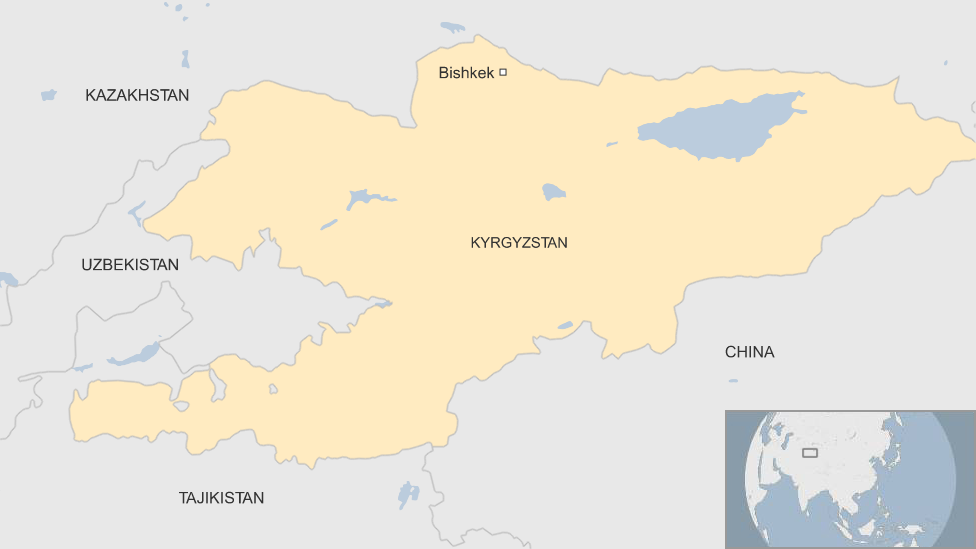
Mr Babanov was also accused of vote-buying, and the Central Elections Committee issued him three warnings for violation of campaign rules.
The Babanov team complained that security services were putting pressure on their candidate by recording their meetings and conversations and arresting his supporters.
An influential MP, Kanatbek Isakov, was detained and charged with an attempt to organise a coup. Security services denied any political motive for the arrest, but Mr Babanov said that Mr Isakov had been arrested because he endorsed him.
Despite all this, many voters feel encouraged by the fact that there are several strong candidates. In their view, this will ensure that the outcome is not rigged.
"Our politicians know that the people will rise if there are serious violations, so they won't go into that," said one voter in the second city, Osh.
Kyrgyzstan has experienced two major uprisings that ousted presidents in the past. And in both cases, rigged elections fuelled the protest mood.
- Published24 March 2023
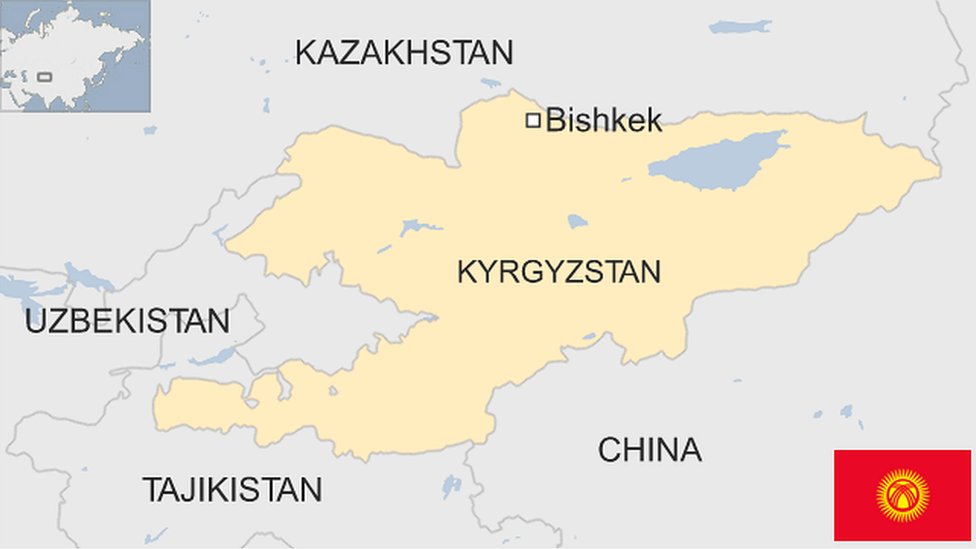
- Published30 July 2017

- Published29 May 2017
